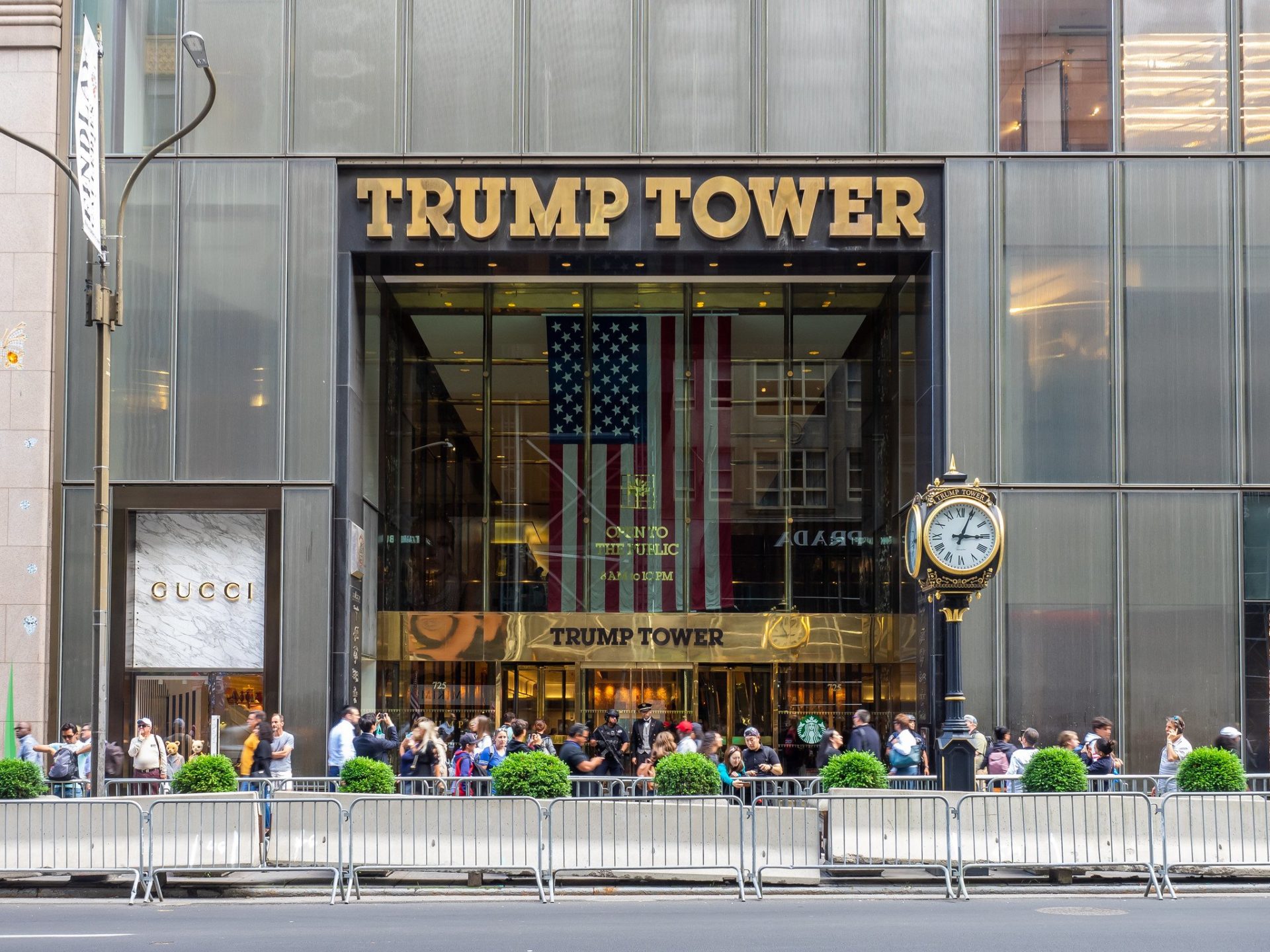
When it comes to the prosecution of Donald Trump and the Trump Organization in New York, all of the oxygen has understandably been consumed by the criminal case led by the Manhattan District Attorney’s Office. When New York Attorney General Letitia James announced that her office was elevating its civil investigation into a criminal one — and joining the Manhattan DA’s effort — it was rightly hailed as a major development.
Yet when James’s office joined the criminal probe, the civil investigation did not end. It has continued, quietly, as a separate matter, with a case expected to be filed in the coming months. And while the prospect of seeing Donald Trump behind bars retains a stronger hold upon the imagination, the civil case has the promise of inflicting immense economic harm on Trump, with legal requirements that are far easier to prove.
Civil Prosecutions in New York
New York fights fire with fire. State laws arm the attorney general with powers to combat fraudulent schemes that might otherwise evade accountability. The most famous such statute is the Martin Act, which allows the New York AG to bring civil investigations and prosecutions into all manners of fraud in the sale or marketing of securities — stocks, bonds, and other tradeable financial instruments.
Unbeknownst to most, New York later expanded upon the Martin Act with Executive Law § 63(12), which covers fraud and illegality in all businesses, not just in securities. Section 63(12) is also sometimes incorrectly referred to as applying only to consumer frauds, when in fact the statutory language is far broader, applying to anyone who commits “repeated fraudulent or illegal acts or otherwise demonstrate[s] persistent fraud or illegality in the carrying on, conducting or transaction of business.” Section 63(12) is thus the Martin Act’s less flashy but more powerful sibling, the strong and silent type.
While the Martin Act has been used in recent years in cases against Merrill Lynch and AIG, we used Section 63(12) in the prosecution against Trump University – resulting in a landmark $25 million settlement that stands as Trump’s greatest legal defeat to date.
The ultimate strength of these laws arises from their legal standards, which are deliberately designed to make cases easier to bring, especially when compared to criminal cases or “common law fraud.” Those other standards require proof of intent and also, in the case of fraud, reasonable reliance: namely,that the defrauded party was reasonable to rely on the fraudulent misrepresentations. Those additional hurdles make criminal or common law fraud cases much more difficult to bring — intent is subjective, a state of mind that can be tricky to pin down, and defendants can use reasonable reliance to play the malefactor’s favorite game: Blame the Victim. “Yes, I tricked you, but you should not have been so easy to trick!”
Section 63(12) and the Martin Act lack those requirements, so that the attorney general may more effectively vindicate victims of fraud and other deceptive business practices. Defendants are liable for engaging in business practices that had a “tendency to deceive.” In other words, if there is deceit, lying, or otherwise illegal activity, there is liability — and with it, the ability for the attorney general to recover misbegotten funds, to levy fines paid to the state, and in egregious enough circumstances, to cancel the businesses’ articles of incorporation and organization, effectively eliminating their privileges to conduct business in the State of New York.
The Civil Prosecution Against Trump
What does all this mean for Donald Trump and his holding company, the Trump Organization, as well as the other Trump subsidiary companies at issue in the pending investigations? The underlying frauds appear to include (1) fraudulent tax filings with the State, as well as New York City and other local governments, and (2) fraud and deception committed against banks and insurance companies. Trump claimed artificially low valuations of his properties for tax assessments, then claimed artificially sky-high valuations of the same properties in their loan applications and representations to insurers.
To make a case against Trump under Section 63(12), then, the key is showing that there were two sets of numbers, one for the tax authorities, and another for banks and insurers. The discrepancies were not minor; this is not a case of prosecuting Allen Weisselberg, the Trump Organization’s CFO, or his team or other accountants, for being bad at math. The differences in claimed valuations ran from two to ten times. These were deceptions, not errors. These discrepancies are so high that they would appear to be obviously intentional, which could doom Trump in the criminal case as well.
The legal standard of 63(12), then, dispenses with many other things that the AG’s office would otherwise have to prove. No need to find the exact email showing the intent of the defendants. Less need to develop the precise line of witness testimony to reveal the state of mind of the individuals involved. No requirement to place defrauded parties under a microscope to determine whether they should have exercised more diligence in vetting Trump’s representations. The case can largely be made on the numbers.
A Day of Reckoning?
Why, then, is the investigation taking as long as it has? James’s office has been pursuing the civil case for the last two years, yes, but during most of that time, the Trump Organization and its accountants have stonewalled, refusing to produce documents — including not just the tax returns themselves but, far more vitally, the financial records underlying those tax returns. Only on February 22, 2021, after the U.S. Supreme Court’s second ruling in Trump v. Vance, were these financial records — millions of pages worth — finally produced.
The operative word in the previous sentence is “millions.” It is painstaking work to comb through such an immense quantity of dense material with the careful eye needed to spot precisely the details that can make or break a case. Especially a case of this magnitude, where every move will be subjected to the most merciless scrutiny. The prosecutors are under enormous pressure. As I was told by senior officials at the AG’s office repeatedly as we finalized the filing of the Trump University case: “It has to be perfect.”
Perfection takes time, but the ultimate result could be well worth the wait for those seeking justice. The valuation discrepancies could all become amounts that Trump must surrender as restitution, which would then be paid to the tax authorities and possibly also to the financial institutions in question, in addition to penalties paid to the State. The total amount could easily be $100 to $500 million, a potentially catastrophic loss for Trump just as equally large loans are coming due. Chronically strapped for liquidity, Trump may be forced to sell some of his properties to come up with the cash.
Then there is the possibility that the AG’s office could seek the “death penalty” for Trump’s businesses: canceling their corporate charters. Most of Trump’s businesses are chartered in New York. They could be relocated elsewhere. But the court could also rule that Trump can no longer operate the businesses in New York at all, even if they are reincorporated in Delaware or Florida or elsewhere — similar to the prohibition a New York court placed on the Trumps’ ability to run charities in New York, after James’s office shut down the Trump Foundation for funneling donor money to non-charitable purposes. This would effectively forbid him from operating his New York buildings such as Trump Tower, potentially forcing him to sell them.
This is precisely the case for which Section 63(12)’s cancelation provision was designed: a decades-long practice of wanton disregard for the laws of the state or for fair and honest business practices. A state’s bestowal of limited liability for a business — allowing business owners and shareholders to avoid personal liability for a business’s debts, negligence, etc. — is a high privilege, not a right, and a privilege that has become so commonplace as to be taken for granted.
Trump’s long history as a con man, mostly centered in New York, warrants the application of the law’s strongest sanctions. Such civil consequences may not land Trump in prison, as the criminal prosecution may, but they may be wreak devastation on Trump’s business empire, which would be a justice all its own.

Tristan Snell
Tristan Snell is an attorney, entrepreneur, legal commentator, and activist. He served as Assistant Attorney General for the State of New York, where he led the prosecution of Trump University and reached a landmark settlement with several major banks regarding consumer fraud in foreclosures. Tristan is now an attorney in New York City fighting for small business owners and individual creators and consumers. His work has been featured by CNN, the Washington Post, the New Yorker, Mother Jones, and Last Week Tonight with John Oliver.






